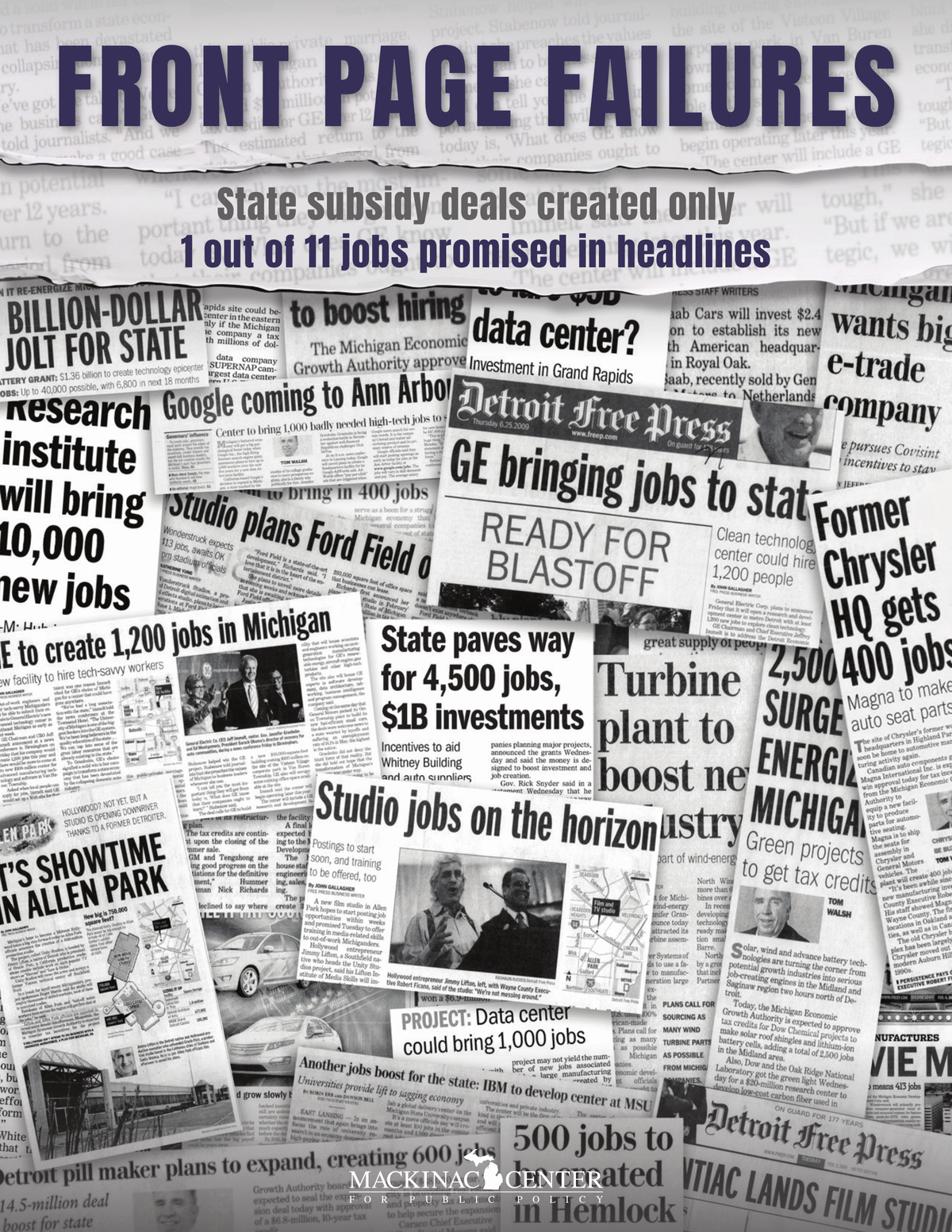Jobs
Job subsidy deals have 91% failure rate

Only one of every 11 jobs promised by Michigan politicians and public officials in business subsidy announcements actually gets created, according to a new study by the Mackinac Center for Public Policy. The study follows up on two decades of front-page news stories about government grants to private businesses, revealing that these deals rarely meet their job-creation goals.
As the Michigan Legislature considers more corporate welfare handouts during its lame-duck session, the new study dives into the promises made about taxpayer-funded business subsidies. The Mackinac Center finds that only 9% of the jobs announced in major state-sponsored deals from 2000 to 2020 were ever created.
Analyzing front-page headlines from the Detroit Free Press, the study found that while companies promised 123,060 jobs through subsidy agreements, only 10,889 materialized. Worse, half of the companies created no jobs, and just 15% of them met or exceeded their job projections.
“News headlines frequently tout the promise of new jobs but rarely report when the programs fail to deliver on their promises,” said James Hohman, director of fiscal policy at the Mackinac Center and author of the study. “This creates a misunderstanding among the public that job announcements are the same thing as actual jobs created. Yet lawmakers continue to rubber-stamp these ineffective and costly deals.”
The study details 41 job announcements and their results, including the three below.
-
A 2007 deal with a Detroit pharmaceutical company promised to create 600 jobs. Instead, the company added zero new jobs and closed its facility by 2014.
-
A 2009 deal with General Electric promised 1,200 jobs. Zero jobs were created.
-
One local official proclaimed she could not “overstate the impact” of a 2015 deal to create 1,000 jobs. The company created 26 jobs.
Even in cases where job claims did pan out, it is not clear that the state support is what compelled the private companies to start or expand operations in the state. Amazon’s subsidized distribution centers accounted for a third of the successful job announcements, but the company operates at least 20 facilities in Michigan, only four of which received subsidies. A previous Mackinac Center analysis found that when incentive deals do create permanent jobs, they come at a high cost to taxpayers.
“The state has delivered two decades of false promises as the companies and politicians involved in these deals rarely deliver on their promises,” Hohman said. “Michigan lawmakers should rethink their reliance on corporate welfare as an economic development tool, and the media should use more skepticism when reporting on these deals. At a minimum, journalists should provide context that job announcements are different from actual jobs and have a poor track record of success.”









